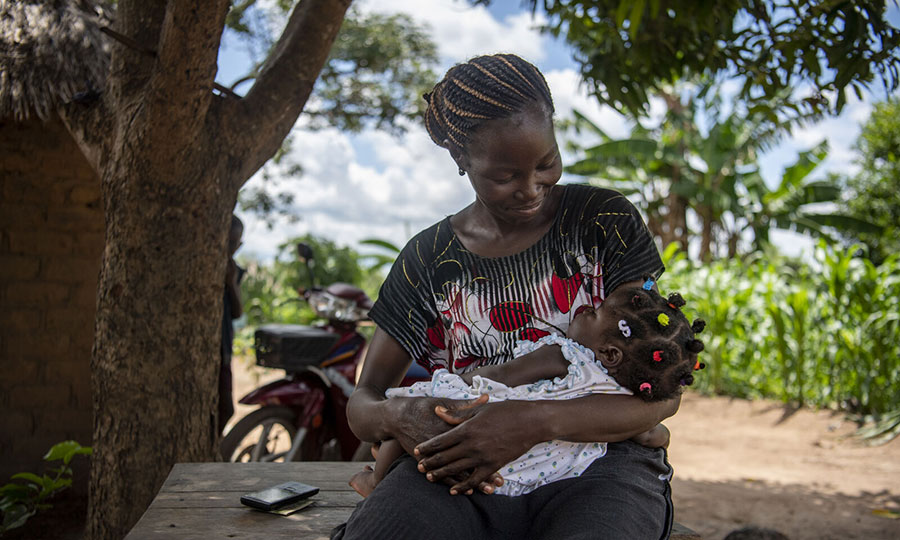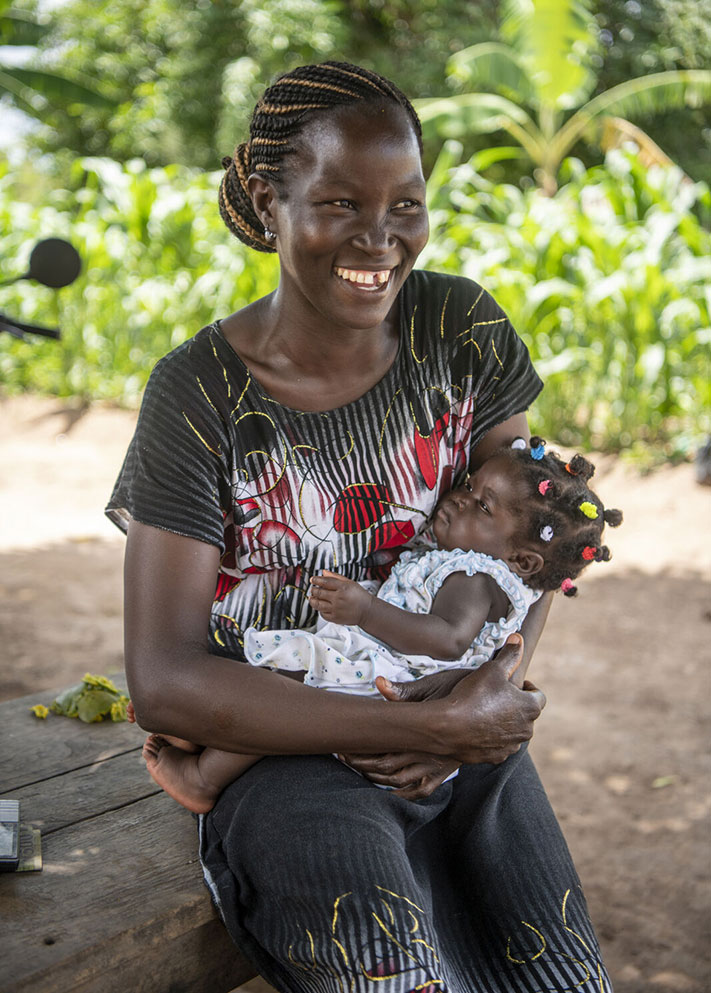South Sudan: Malnutrition and a Changing Climate

Life is not easy for those who call South Sudan, one of the world’s youngest nations, home. Fragile health infrastructure, limited resources, and growing social unrest are exacerbated by the impact of climate change. The immediate aftermath of flooding caused by increased rainfall can mean wide-scale displacement, heightening the threat of conflict. In the long-term, we see farms destroyed and chronic malnutrition, especially among children. This year, food insecurity is expected to impact over 60% of the population.
In South Sudan, the threat of severe flooding looms over rural communities who depend on the land to nourish their families. But Marzeta, a single mother of four, carries on despite the challenging circumstances her children face.
In a rural community of Nzara, Marzeta was increasingly worried about her malnourished daughter, Mercy. At only four months old, Mercy was dangerously malnourished and Marzeta struggled to find her help. That’s when she was welcomed into the CMMB nutrition program, and everything started to change. Mercy began receiving critical care and Marzeta gained access to information on things like like healthy feeding practices and garden cultivation to support her daughter’s health.

Marzeta holds Mercy, who has recovered from malnutrition.
As Mercy started to regain strength, Marzeta became inspired to join the local CMMB garden club. As a participant, she joined a community of mothers empowering one another and learning essential cooking skills—all while cultivating a garden. As the head of her household and a role model to her community, Marzeta is hoping to inspire others to build healthier futures for their children. CMMB’s partnership with UNICEF is striving to end malnutrition through various initiatives such as community gardens, distribution of food resources, and essential training of community health workers to identify, monitor, and refer cases to health facilities—so that children like Mercy can look towards healthy futures.